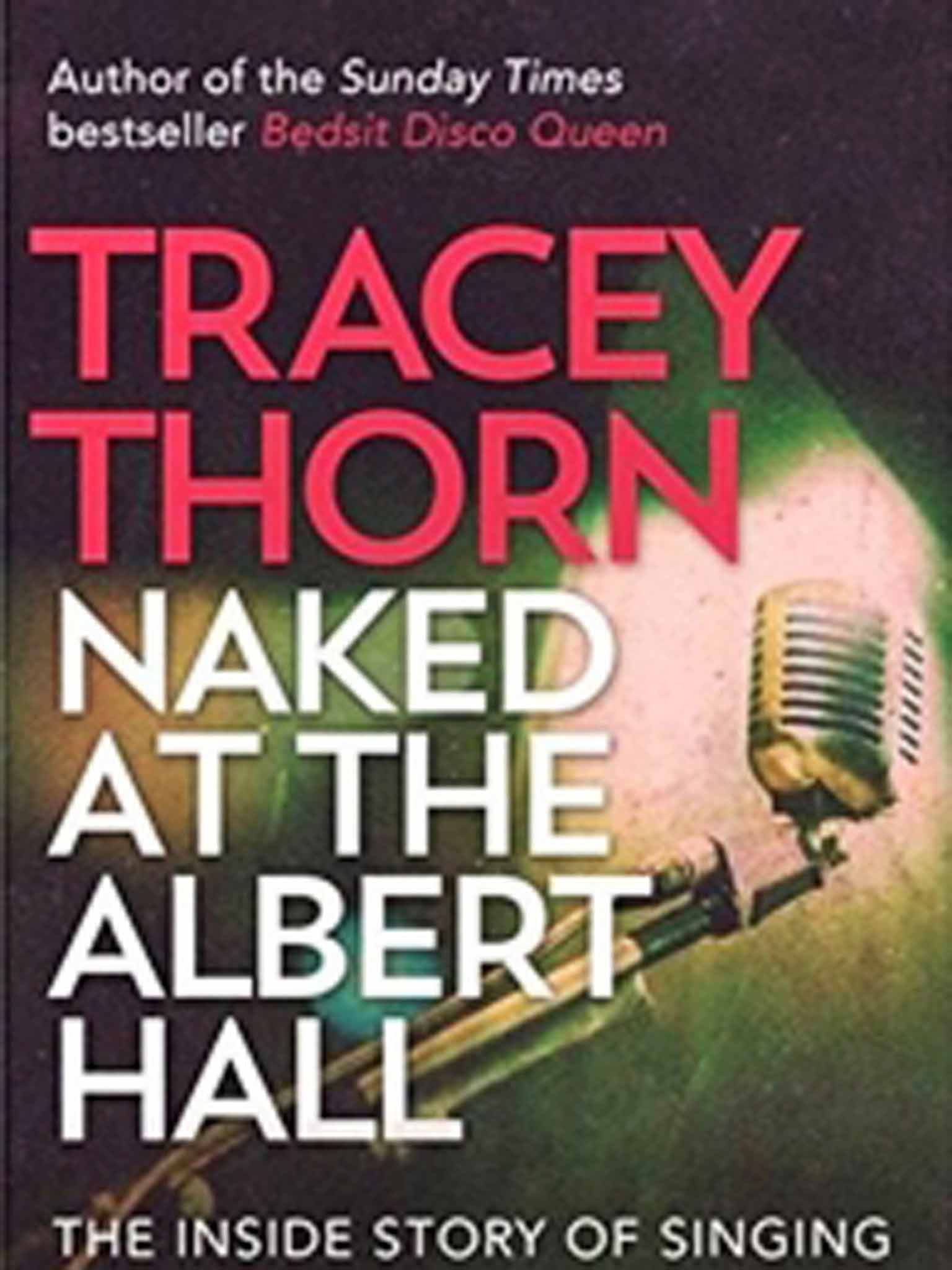Naked at the Albert Hall, by Tracey Thorn - book review: A candid tale of stage fright
A wry, warm and deliberately accessible collection of thoughts, footnotes and micro-essays

Your support helps us to tell the story
From reproductive rights to climate change to Big Tech, The Independent is on the ground when the story is developing. Whether it's investigating the financials of Elon Musk's pro-Trump PAC or producing our latest documentary, 'The A Word', which shines a light on the American women fighting for reproductive rights, we know how important it is to parse out the facts from the messaging.
At such a critical moment in US history, we need reporters on the ground. Your donation allows us to keep sending journalists to speak to both sides of the story.
The Independent is trusted by Americans across the entire political spectrum. And unlike many other quality news outlets, we choose not to lock Americans out of our reporting and analysis with paywalls. We believe quality journalism should be available to everyone, paid for by those who can afford it.
Your support makes all the difference.The title of Tracey Thorn's new book refers her long-standing stage fright, made plain in a recurring dream that finds her on stage at the Albert Hall in the altogether. As an ex-Marine Girl, singer in Everything But the Girl and intermittent solo artist, Thorn has enjoyed a long and successful career though her fear of performing live means she hasn't stepped on stage in 15 years.
This tricky relationship with her art brings a crucial tension to Naked at the Albert Hall, a terrific reflection on singing, performance and the anatomy of the voice. Music is everything to Thorn and she's doesn't take her talent for granted. But central to the discussion is her sense that singing for a living, and all the other things that it entails, is really rather odd.
Thorn's last book was a memoir that began with her, a terminally shy 16-year-old, auditioning for her first band from inside a wardrobe. Here she fills in some of the gaps. One moment she's wailing along with Patti Smith in her bedroom ("something I shared with nobody"), the next she's standing in a nightclub loo singing the opening lines from her mega-hit "Missing" at the behest of two over-excited clubbers ("You sound just like you!" they gasp).
As Thorn points out, her book is neither a musicologist's research project or a journalistic investigation, more a wry, warm and deliberately accessible collection of thoughts, footnotes and micro-essays. She looks at how, historically, singers have been elevated and denigrated and examines different styles, from the semi-spoken sneer of John Lydon and the "dark brown tones" of Nico to Dusty Springfield's wounded melodrama. She examines the mechanics of the voice, and wrangles with the concept of singing as a "gift", skewering myths and correcting misconceptions as she goes. Technical aids such as amplification and Auto-Tune are addressed and assessed, as is The X Factor (she can't get enough of it).
As well as referencing novelists and academics – among them George Eliot and Lavinia Greenlaw – she talks to fellow performers including Throwing Muses' Kristin Hersh, Scritti Politti's Green Gartside and her very own mini-me, The xx's Romy Madley Croft, allowing us to eavesdrop on their conversations.
But Thorn's most intriguing case study is herself. She pores over her own singing voice while her disinclination to perform live is a recurring theme. "I do sing," she says, "it's just that quite often, like the proverbial tree falling in the forest, there is no one there to hear me."
Join our commenting forum
Join thought-provoking conversations, follow other Independent readers and see their replies
Comments